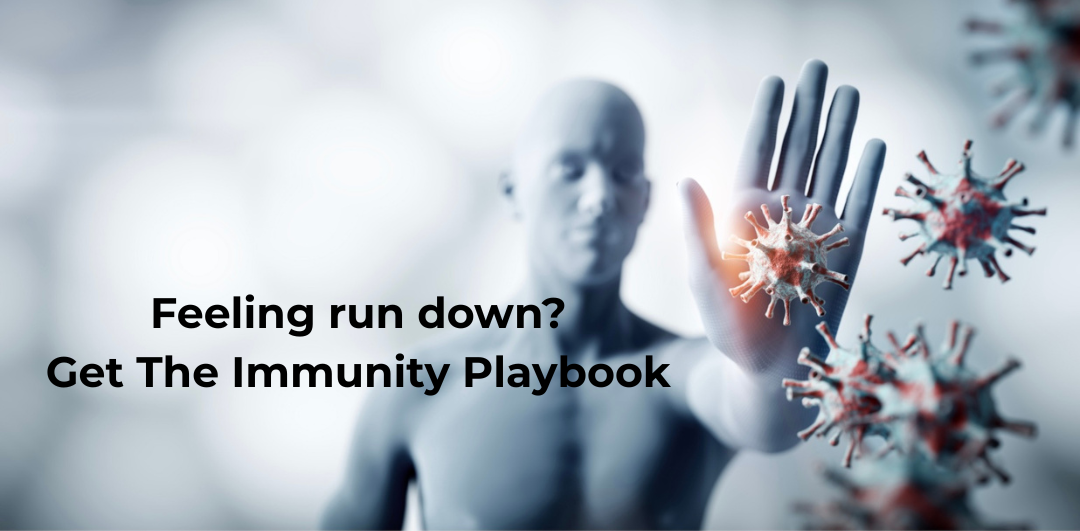How Low Testosterone Affects Women’s Health
Sep 22, 2025
If you've been feeling like a shadow of your former self—lacking the spark, drive, and vitality you once had—you might be surprised to find that it could be related to your testosterone levels. But before we get into health issues related to low testosterone and how to combat them, we need to first shatter a myth right off the bat: testosterone isn't just the domain of men. This powerful hormone plays a crucial role in women's health, yet it remains one of the most overlooked pieces of the female wellness puzzle. Even well-meaning doctors often miss the signs, leaving countless women struggling with symptoms they can't quite pin down or understand.
From unexplained fatigue to vanishing libido, from stubborn weight gain to that foggy feeling that no amount of coffee seems to clear, low testosterone could be the missing link in your health journey. Yet there is so little information available for women about how testosterone (and the varying levels of it) affects them. This blog will help shed some light on the dark areas surrounding this misunderstood hormone and how it affects women (particularly those in perimenopause or who've had surgical procedures affecting their reproductive organs).
Women Need Testosterone Too
Testosterone isn't some masculine hormone that accidentally wandered into the female body. Women naturally produce this vital hormone in their ovaries and adrenal glands, and it serves essential functions that extend far beyond what most people realize.
Testosterone fuels mood stability, confidence, and mental clarity. It's the hormone behind that sharp, focused feeling when you're firing on all cylinders. When it comes to intimacy, testosterone is the driving force behind libido and sexual satisfaction.
From a physical standpoint, testosterone helps maintain muscle tone and supports a healthy metabolism. It's also your motivation hormone, literally fueling ambition and drive. That get-up-and-go attitude that helps you tackle challenges? Testosterone is driving that bus.
The Symptoms You're Ignoring (That Might Be Low T)
Low testosterone doesn't announce itself with dramatic symptoms—instead, it slowly dims your inner light until you barely recognize yourself.
Low libido is often the most recognized symptom, but it's just the tip of the iceberg. You might notice muscle loss despite your best efforts at the gym, or weight gain that stubbornly settles around your midsection no matter how clean your diet becomes. That brain fog? That could be low T talking.
The fatigue associated with low testosterone is particularly insidious—it's not the kind you can fix with sleep or some energy drink. It's a deep, persistent tiredness that seems to settle into your bones. You might find yourself feeling flatlined during workouts that used to energize you, or experiencing sleep disruptions that leave you feeling unrested.
Perhaps most concerning is the subtle shift in mood—a low-level depression or lack of motivation that isn't severe enough to warrant immediate attention, but persistent enough to rob you of joy and enthusiasm.
Top 5 Root Causes of Low Testosterone in Women
Understanding why your testosterone might be low is the first step toward reclaiming your vitality. Here are the most common culprits:
1. Chronic Stress & HPA Axis Dysfunction
When you're constantly stressed, cortisol becomes the dominant hormone, essentially stealing the spotlight from testosterone production. Your body prioritizes survival over vitality, leaving testosterone production in the dust.
2. Birth Control & Hormonal Suppression
Synthetic hormones can significantly disrupt your body's natural hormone production patterns. Many women don't realize that hormonal birth control can suppress testosterone for months or even years after discontinuation.
3. Thyroid Imbalances
Functional thyroid dysfunction often coexists with low testosterone. When your thyroid isn't functioning optimally, it creates a cascade effect that can suppress other hormones, including testosterone.
4. Toxin Overload
We're surrounded by endocrine disruptors—BPA in plastic containers, phthalates in personal care products, pesticides on our food. These chemicals can interfere with hormone production and create an estrogen-dominant environment that suppresses testosterone.
5. Surgical or Medical History
Procedures like ovary removal or natural menopause create sudden hormonal shifts that dramatically impact testosterone production. The body needs time and support to adjust to these changes.
What Most Labs Miss
When it comes to testosterone, conventional medicine often falls short: "normal" lab ranges are based on averages from a sick population, not optimal levels for vibrant health. You can be within the "normal" range and still feel terrible.
Plus, timing matters enormously when testing testosterone, because testosterone levels naturally fluctuate throughout the day as well as during specific times of the menstrual cycle.
When seeking functional labs, don't settle for just a total testosterone reading. Request a comprehensive panel that includes total testosterone, free testosterone, DHEA, and SHBG (sex hormone-binding globulin). Consider pairing these tests with estradiol, progesterone, a complete thyroid panel, and cortisol levels to get the full picture of your hormonal landscape.
Test, don't guess. Your health deserves clarity, not confusion. Learn more about the functional hormone panel I use with my clients.
What To Do If Your Testosterone Is Tanked
If testing reveals low testosterone, resist the urge to jump straight to hormone replacement. Start with root cause resolution by addressing stressors and supporting your adrenal glands, which are often exhausted from chronic stress.
Step One: Clean Out the Toxins
Your environment plays a huge role in hormonal health, and toxins are everywhere. Combat your exposure where you can by switching from plastic to glass containers, choosing organic produce when possible, and buying phthalate- and paraben-free personal care products.
Step Two: Address Nutrition
Nutrition is medicine: prioritize zinc-rich foods, ensure adequate vitamin D levels, consume high-quality protein at every meal, and don't fear healthy fats—they're the building blocks of hormones.
Step Three: Get Moving
Movement matters, but not all exercise is created equal for hormone health. Strength training signals your body to maintain and build muscle tissue, which supports healthy testosterone levels. While cardio has its place, excessive amounts can suppress testosterone production.
Step Four: Supplement Where Needed
Consider adaptogenic herbs and targeted supplementation based on your individual needs. Some women benefit from ashwagandha for stress support, while others need specific nutrients like zinc or vitamin D.
Step Five: If All Else Fails…
…consider bioidentical hormone replacement therapy (BHRT), which can be beneficial for some women. However, this should only be considered after addressing root causes and under careful supervision with a practitioner who understands your entire health picture.
Restoring You
You're not "just getting older," and you're not imagining your lack of spark. That vibrant, energetic, confident woman you remember being is still there—she's just been operating with suboptimal fuel. The path forward isn't about accepting diminished vitality as inevitable. It's about understanding that your body is incredibly intelligent and, given the right support, capable of remarkable restoration.
Want to know if low testosterone is part of your health puzzle? Let’s talk! Together we can uncover the missing pieces for your vibrant health.


